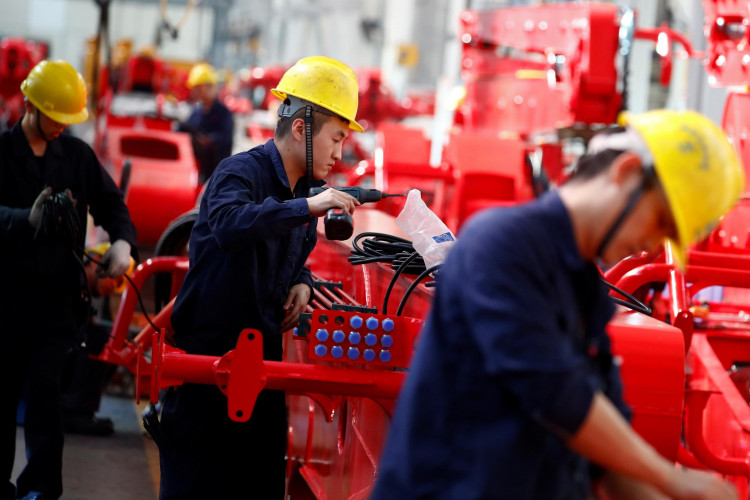Profits at Chinese manufacturing companies are not so rosy these days, falling 5.3 percent from a year earlier in September, representing the fastest fall in four years, according to information from Sunday's National Statistics Bureau.
The collapse in earnings in this crucial segment of China's economic backbone represented an increase from the 2 percent downturn in August and was the biggest decrease since August 2015.
Between them, income dropped by 9.7 percent in state-owned companies, while profits from private enterprises grew 5.5 percent. Profits in foreign-funded business companies and shareholders in Hong Kong dropped 4.2 percent.
In a sector overview, oil, carbon and other fuel production income shrank 53.4 percent compared to a year ago in the first nine months of this year, while profits in the ferrous metal manufacturing business dropped 41.7 percent.
Income in the manufacture of vehicles dropped 16 percent, and income in the textile industry was down 4.4 percent, according to NBS.
Manufacturing sales fell nearly 4 percent in the first three years. A detailed breakdown of the September profit figure was not provided by the statistics agency.
Worsening industrial productivity is a symbol of a slowdown in organic growth momentum in China, despite efforts by the government to boost growth with aggressive fiscal stimulus.
In the third quarter, gross domestic product growth in China declined 6 percent year-on-year, slowing from 6.1 percent in the previous quarter and approaching the lower end of the government's goal for this year.
The statistical authority disclosed that the weakening in earnings for the month is the result of a quicker retreat in the prices of industrial products and a slower hike in sales.
Last month, the government's consumer price index was down (minus) 1.2 percent, reflecting poor demand in the local front.
Exports were down 3 percent, but with imports climbing even higher, while producers continued to experience pressure, with the US trade debacle now entering in its fifteenth month.
Meanwhile, optimism is high that a trade war deal will be inked in November's Asia-Pacific Economic Cooperation Summit in Chile between Chinese leader Xi Jinping and US President Donald Trump.
Beijing also promised to buy US$40 billion to US$50 billion worth of US farm produce over the past week-partially in exchange for Washington's delay of a tariff hike originally planned for October 15-and to expand its financial markets more.
Nonetheless, on December 15, it still faces the prospect of the US implementing a higher 15% tariff on its exports worth around US$ 160 billion.






